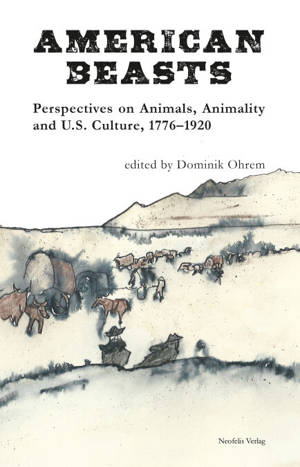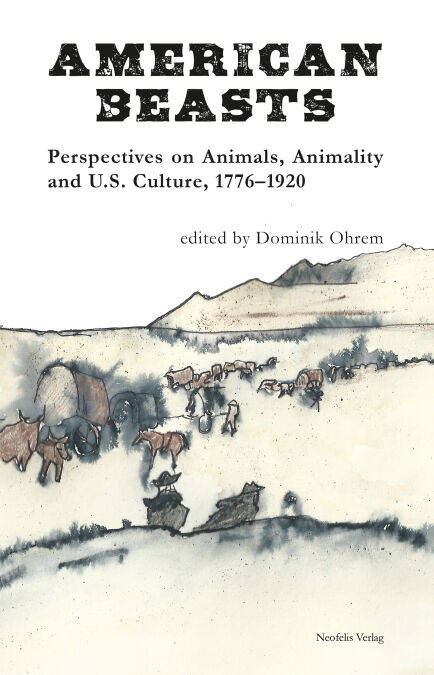
- Retrait en 2 heures
- Assortiment impressionnant
- Paiement sécurisé
- Toujours un magasin près de chez vous
- Retrait gratuit dans votre magasin Club
- 7.000.0000 titres dans notre catalogue
- Payer en toute sécurité
- Toujours un magasin près de chez vous
American Beasts EBOOK
Perspectives on Animals, Animality and U.S. Culture, 1776–1920
Roman Bartosch, Keridiana Chez, Brigitte Fielder, Katherine C. Grier, Andrew Howe, Michael Malay, Neill Matheson, Dominik Ohrem, Olaf Stieglitz, Aimee Swenson
Ebook | Anglais
26,00 €
+ 26 points
Format
Description
In American history, animals are everywhere. They are a ubiquitous presence in myriad historical, literary, biographical, scientific and other documents and narratives of the American past – a past that, just like the present, was shaped by a multiplicity of relations between humans and other creatures ranging from coexistence and conviviality to hostility, subjugation and extermination. While such quintessentially American species as the bison, the mustang or the grizzly continue to roam the discursive, imaginary and, now to a much lesser degree, the geographical spaces of the nation, the less iconic creatures of civilization – the various species of domesticated working and companion animals – have arguably played an even more critical role in the genesis of modern American culture and society throughout the 'long nineteenth century.'
Until recently, however, despite their ubiquity in historical documents, social relations and cultural productions, animals have rarely been of serious interest to mainstream historians. American Beasts argues that an adequate understanding of American history, and indeed of 'human' history more broadly, requires a sustained engagement with its multifaceted more-than-human dimensions.
The contributions collected here offer various insights into the broad relevance of animality and human-animal relations – from the culture of pet-keeping and the role of animals and animality in the context of slavery and abolition to the emergence of animal athletes at the turn of the twentieth century – as aspects that have always influenced all areas of American society. In addition, by highlighting the ways in which human-animal relations crucially shaped the relations (of power) between different groups of humans, American Beasts shows that a stronger concern with animals and animality also allows us to address the complex intersections between the history of human-animal relations and the histories of (for example) race, class and gender in the United States in the time from the early national period to the Progressive Era.
Until recently, however, despite their ubiquity in historical documents, social relations and cultural productions, animals have rarely been of serious interest to mainstream historians. American Beasts argues that an adequate understanding of American history, and indeed of 'human' history more broadly, requires a sustained engagement with its multifaceted more-than-human dimensions.
The contributions collected here offer various insights into the broad relevance of animality and human-animal relations – from the culture of pet-keeping and the role of animals and animality in the context of slavery and abolition to the emergence of animal athletes at the turn of the twentieth century – as aspects that have always influenced all areas of American society. In addition, by highlighting the ways in which human-animal relations crucially shaped the relations (of power) between different groups of humans, American Beasts shows that a stronger concern with animals and animality also allows us to address the complex intersections between the history of human-animal relations and the histories of (for example) race, class and gender in the United States in the time from the early national period to the Progressive Era.
Spécifications
Parties prenantes
- Auteur(s) :
- Editeur:
Contenu
- Nombre de pages :
- 304
- Langue:
- Anglais
Caractéristiques
- EAN:
- 9783958081000
- Date de parution :
- 17-01-17
- Format:
- Ebook
- Protection digitale:
- Digital watermarking
- Format numérique:

Seulement chez Librairie Club
+ 26 points sur votre carte client de Librairie Club
Les avis
Nous publions uniquement les avis qui respectent les conditions requises. Consultez nos conditions pour les avis.







